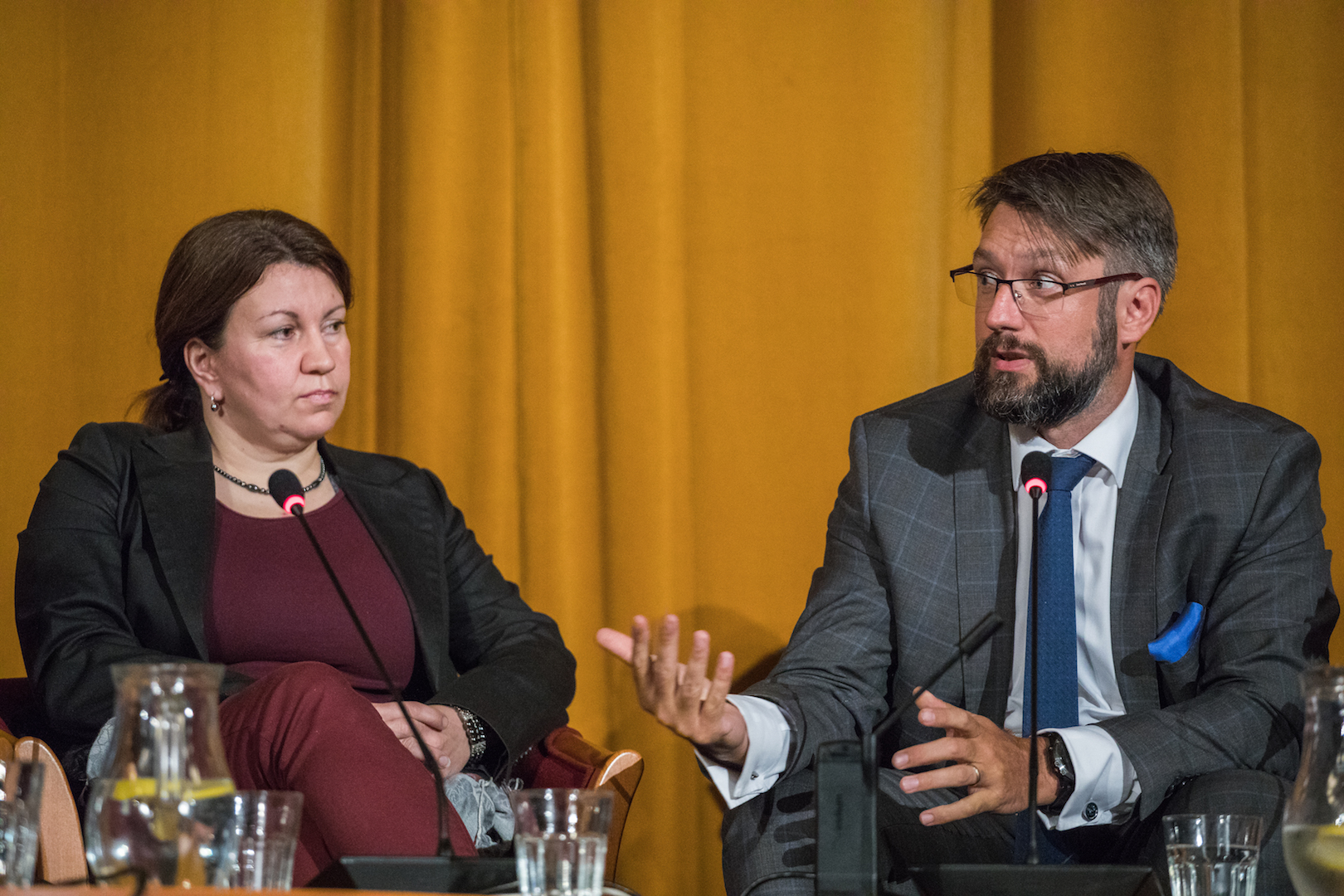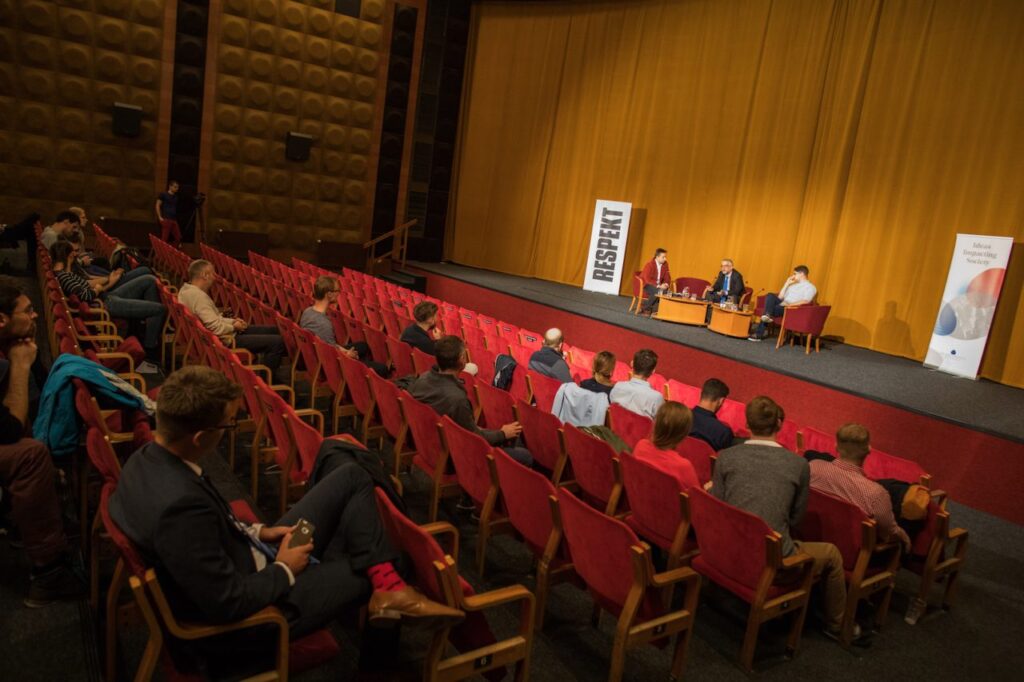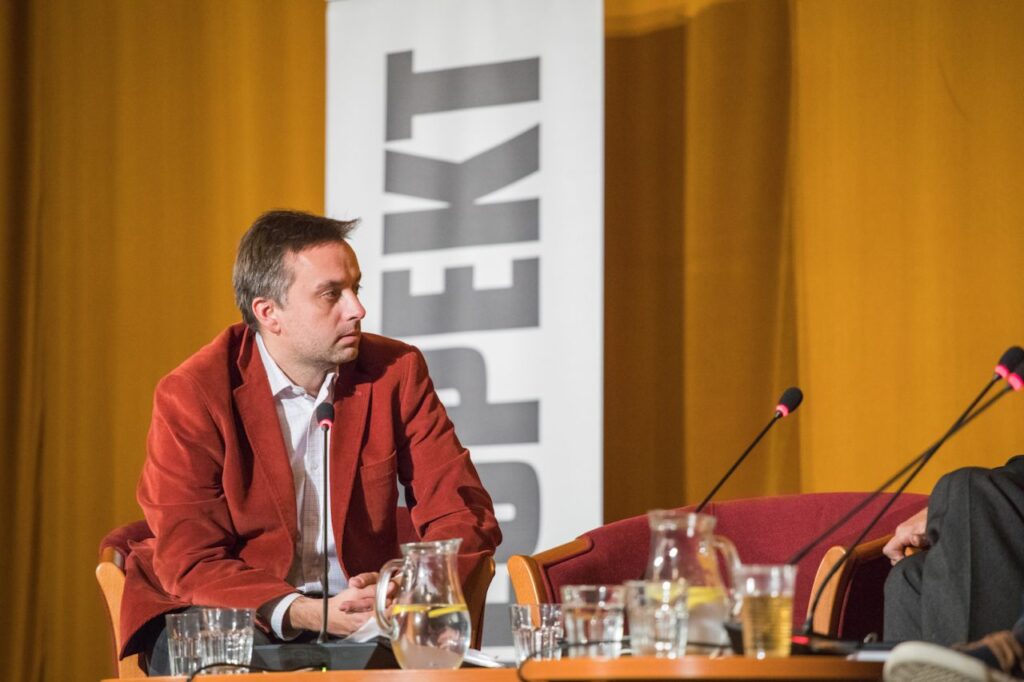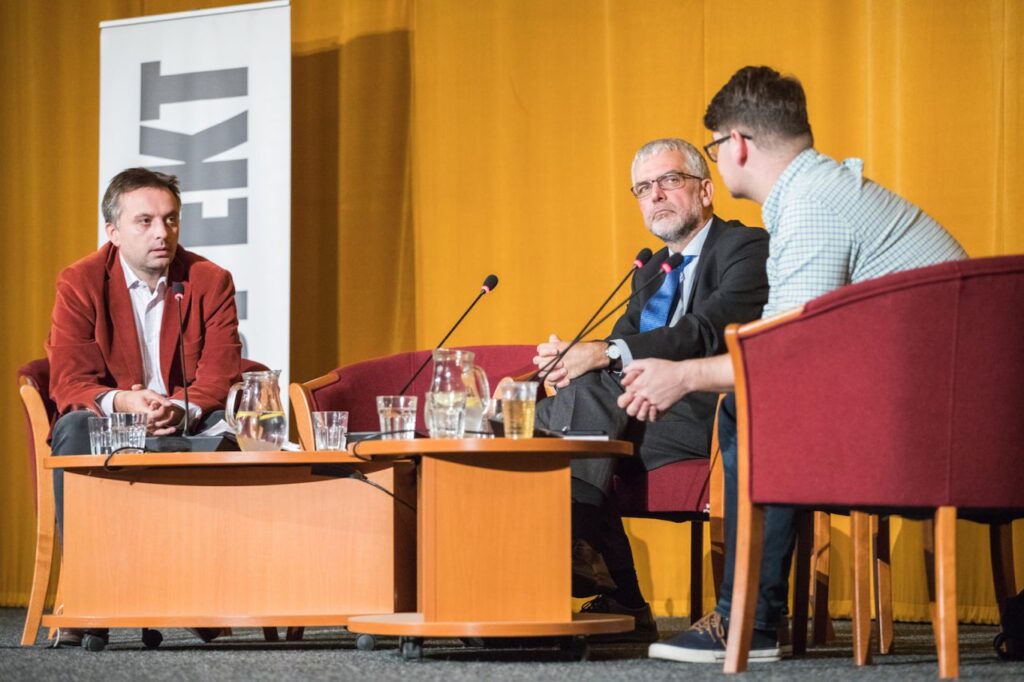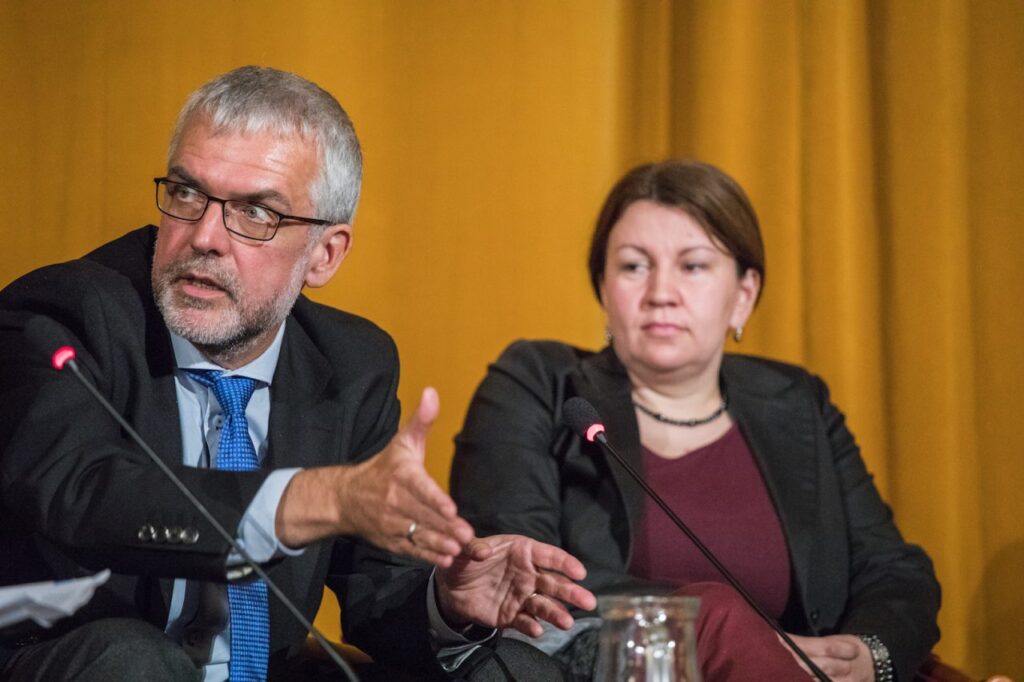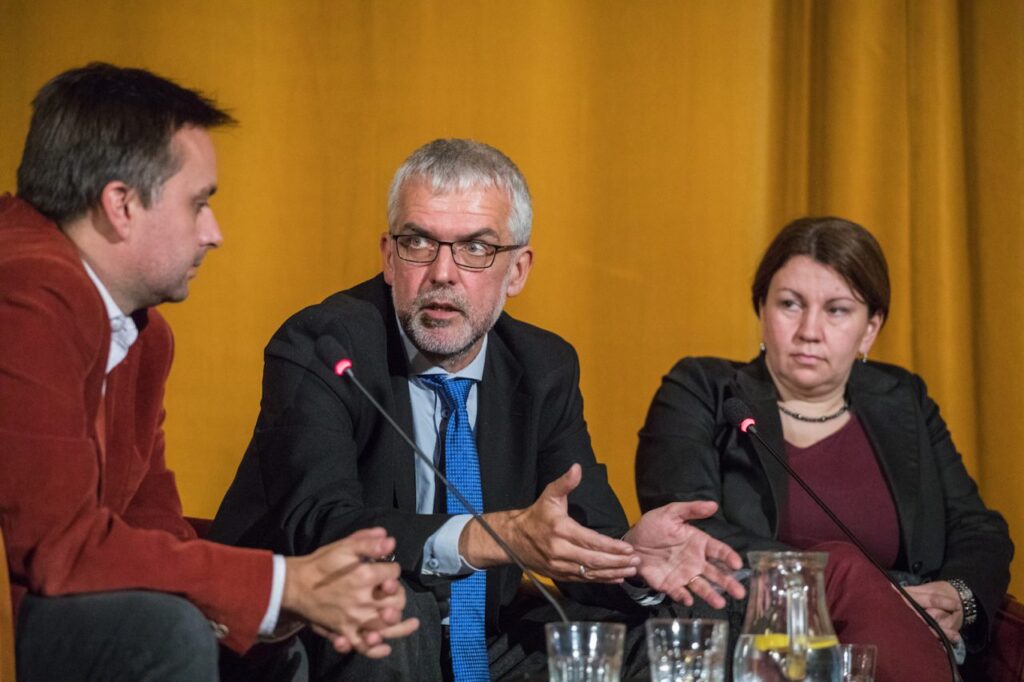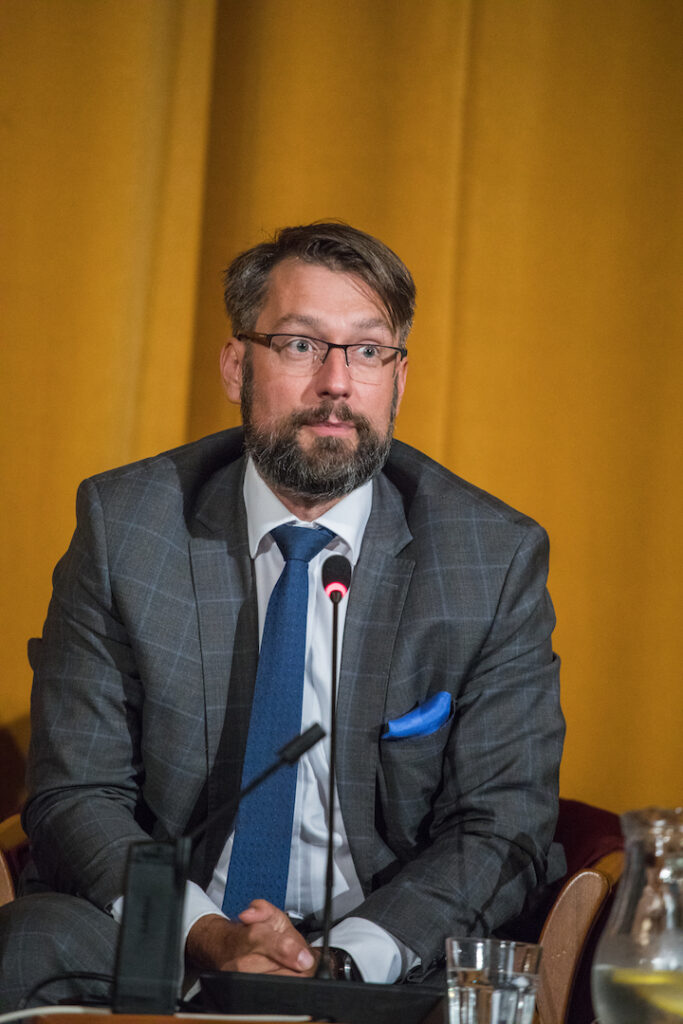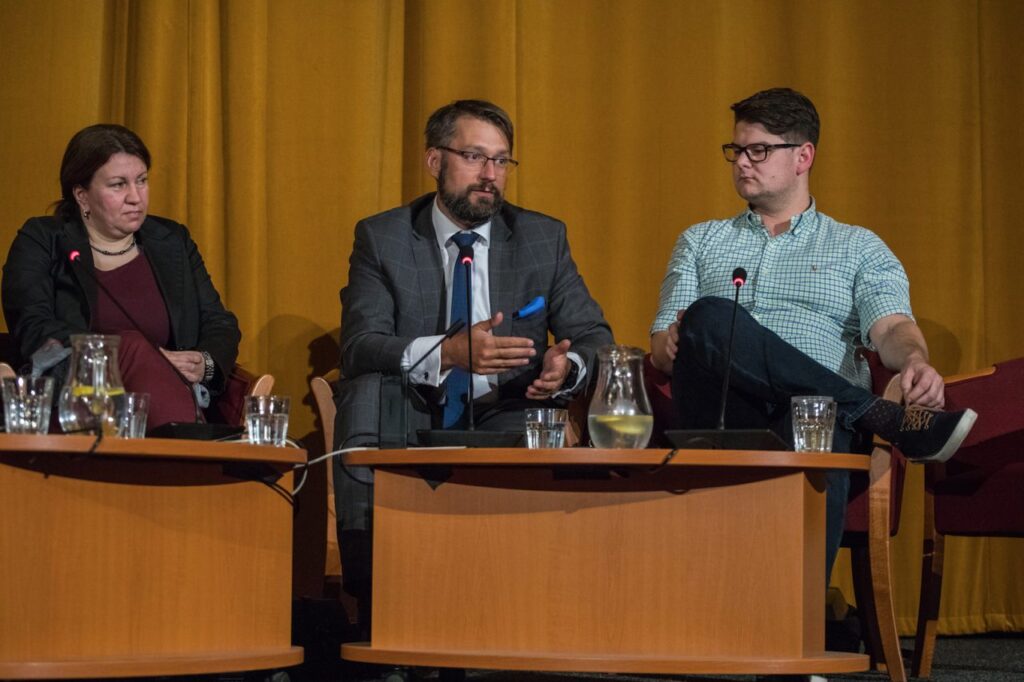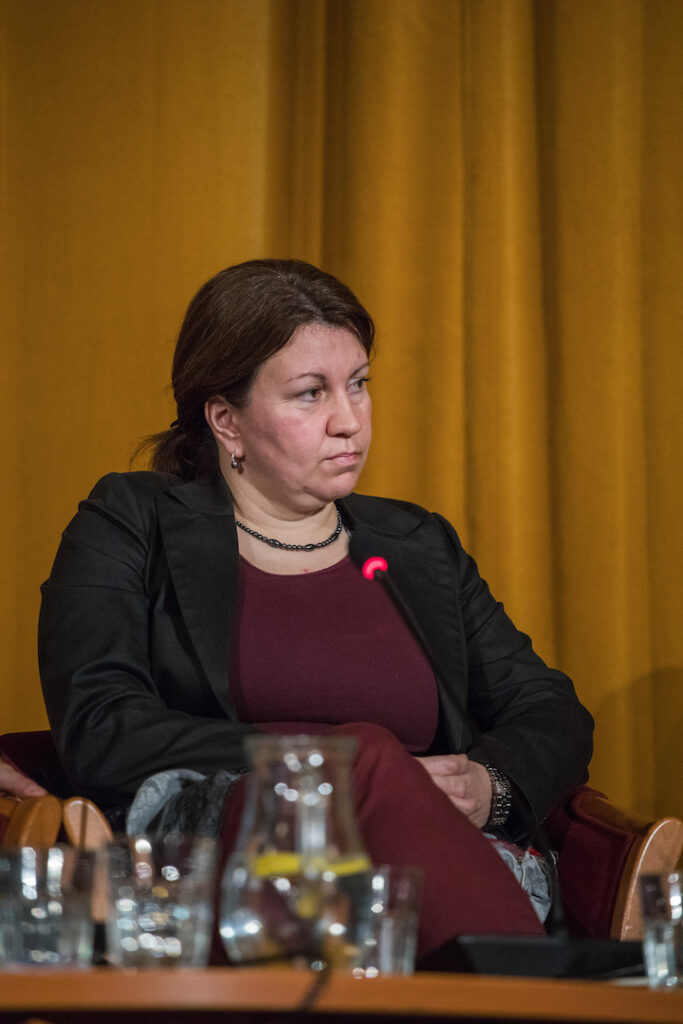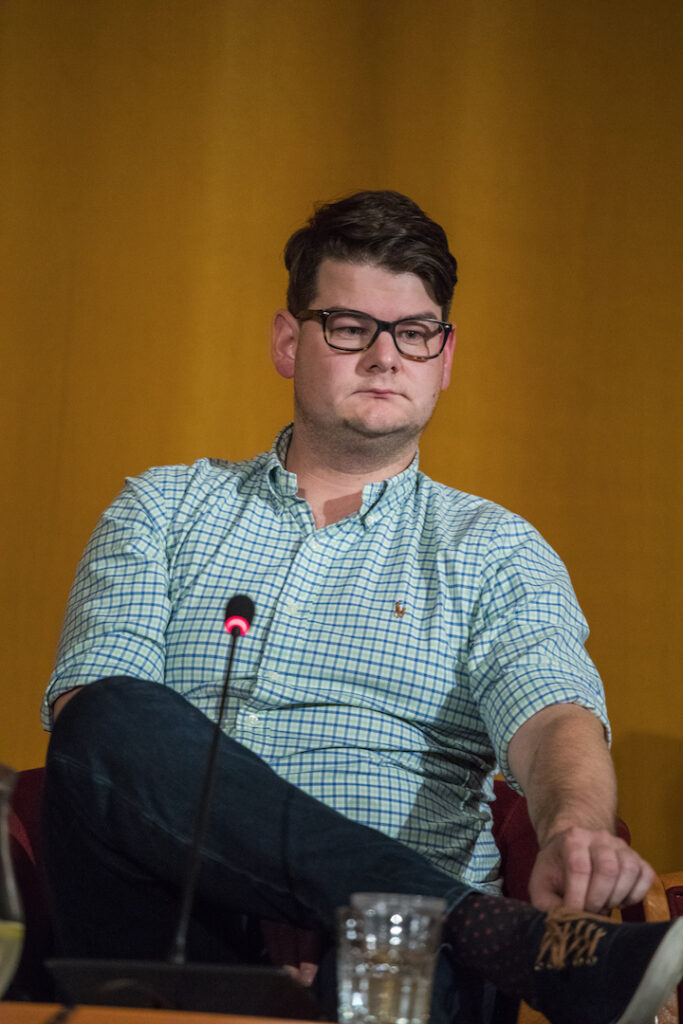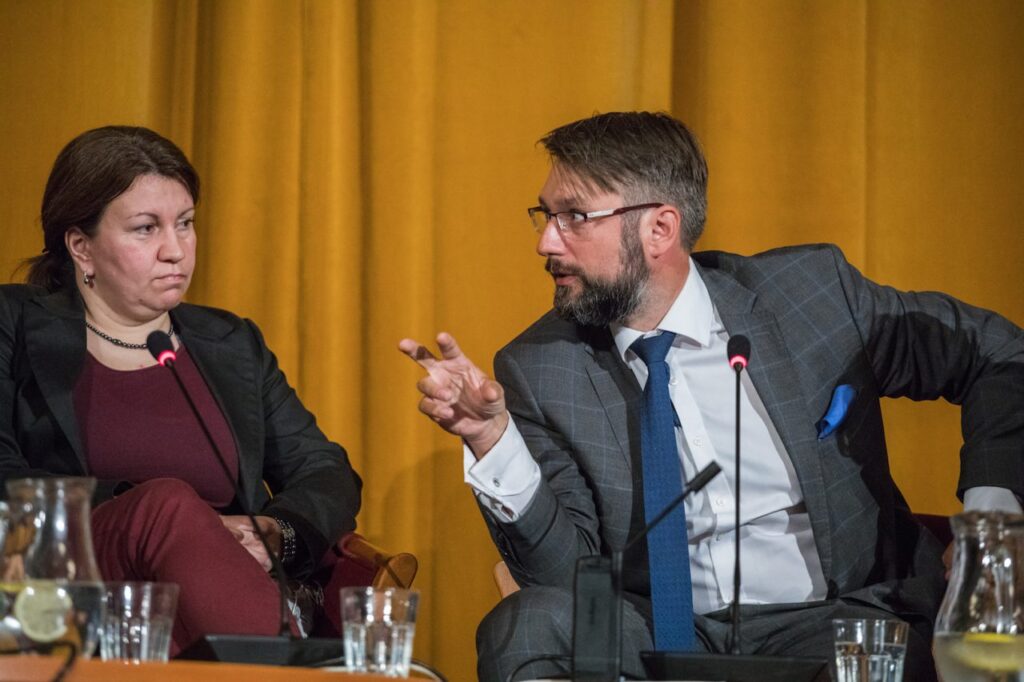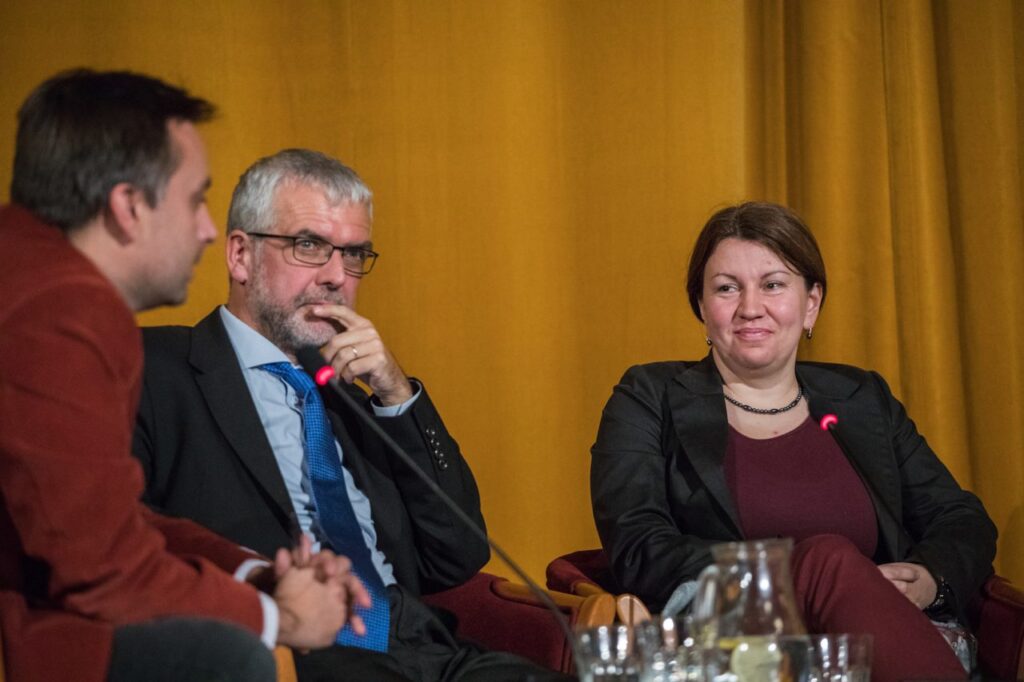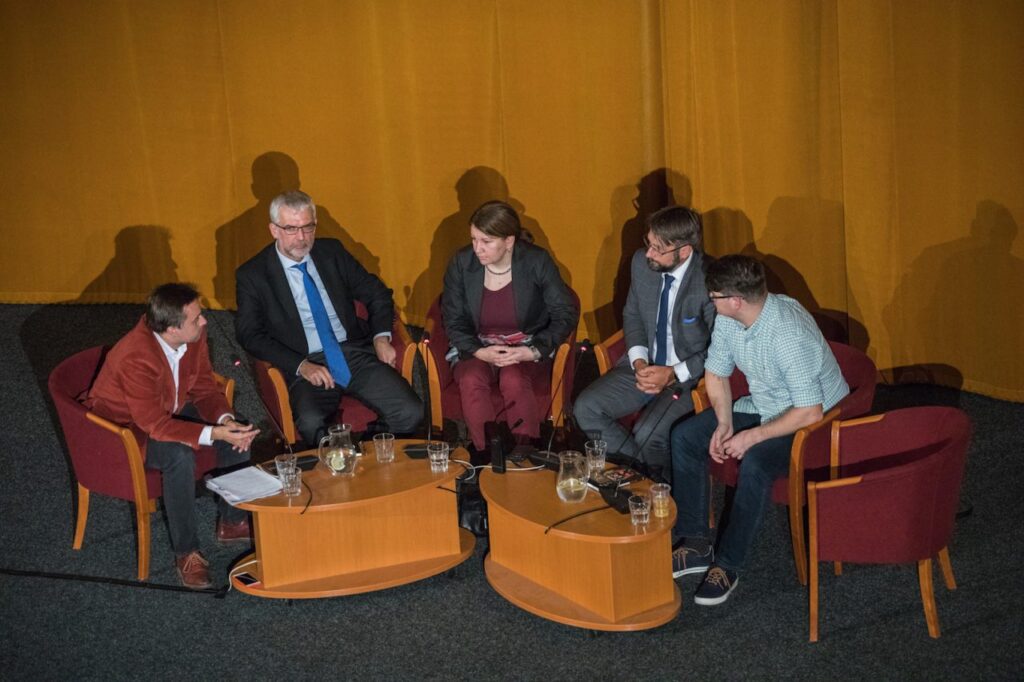On Monday, October 9th, the Aspen Institute Central Europe (in cooperation with the Respekt Weekly and Vaclav Havel Library) invited top Czech experts on cybersecurity to cinema Scala in Brno to engage in a public debate moderated by Ondřej Kundra. Daniel Bagge (Cyber Security Division of the National Security Authority), Jakub Landovský (Deputy Minister of Defense), Eva Romancová (Ministry of Interior) and Jiří Schneider (Executive Director AICE) spoke both about their individual experiences with cybersecurity as well as about the broader present and future cybersecurity challenges. One of the important messages was that there needs to be an open debate about the risks – and failures to mitigate them – as it is an essential tool for learning and improving the prevention and defense mechanisms. Despite that, the cyber attackers will always be few steps ahead and they will always possess more instruments to inflict harm. The speakers also stressed that no level of sophistication on the part of the prevention systems can substitute lack of individual responsibility.
The important part of the discussion focused on new forms of conflicts like disinformation campaigns, propaganda and other digital means of the so-called “hybrid warfare”. While it is important to take preventive measures that would make it more difficult for potential attackers to affect, for example, election process, it is far more important to work on restoring trust in governmental institutions which is traditionally very low in the Czech Republic.
These three early October debates paved the way to the 2017 Aspen Annual Conference which will take place on November 29th – 30th in the Convent of St. Agnes of Bohemia in Prague.

